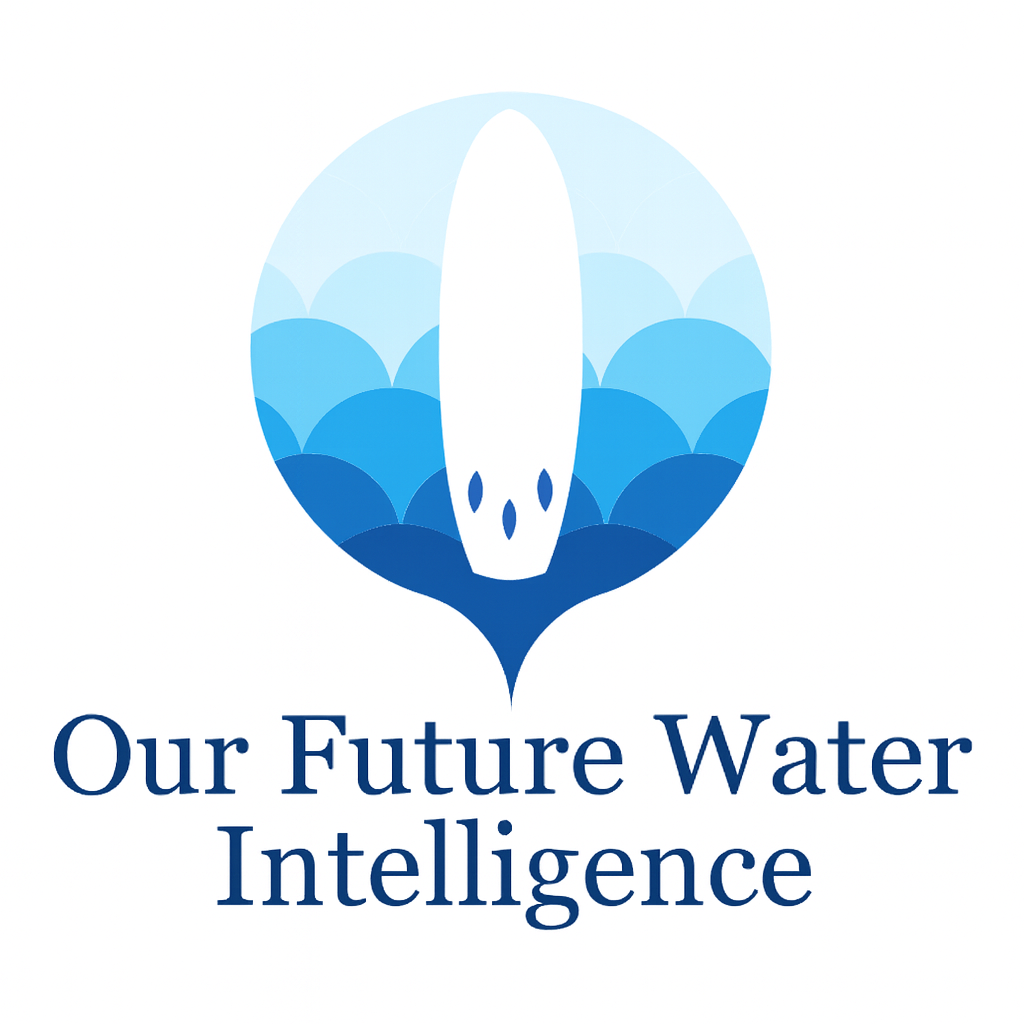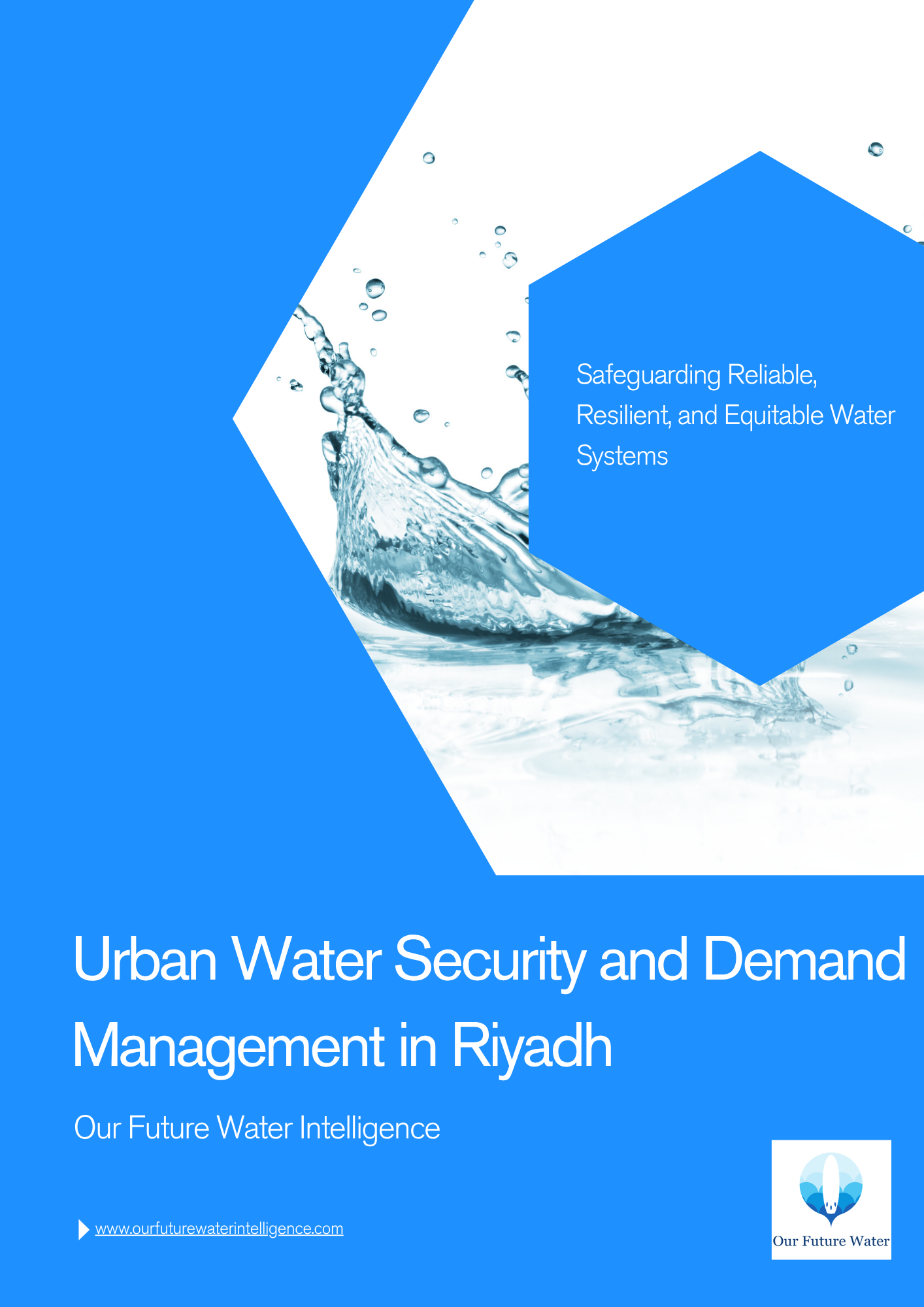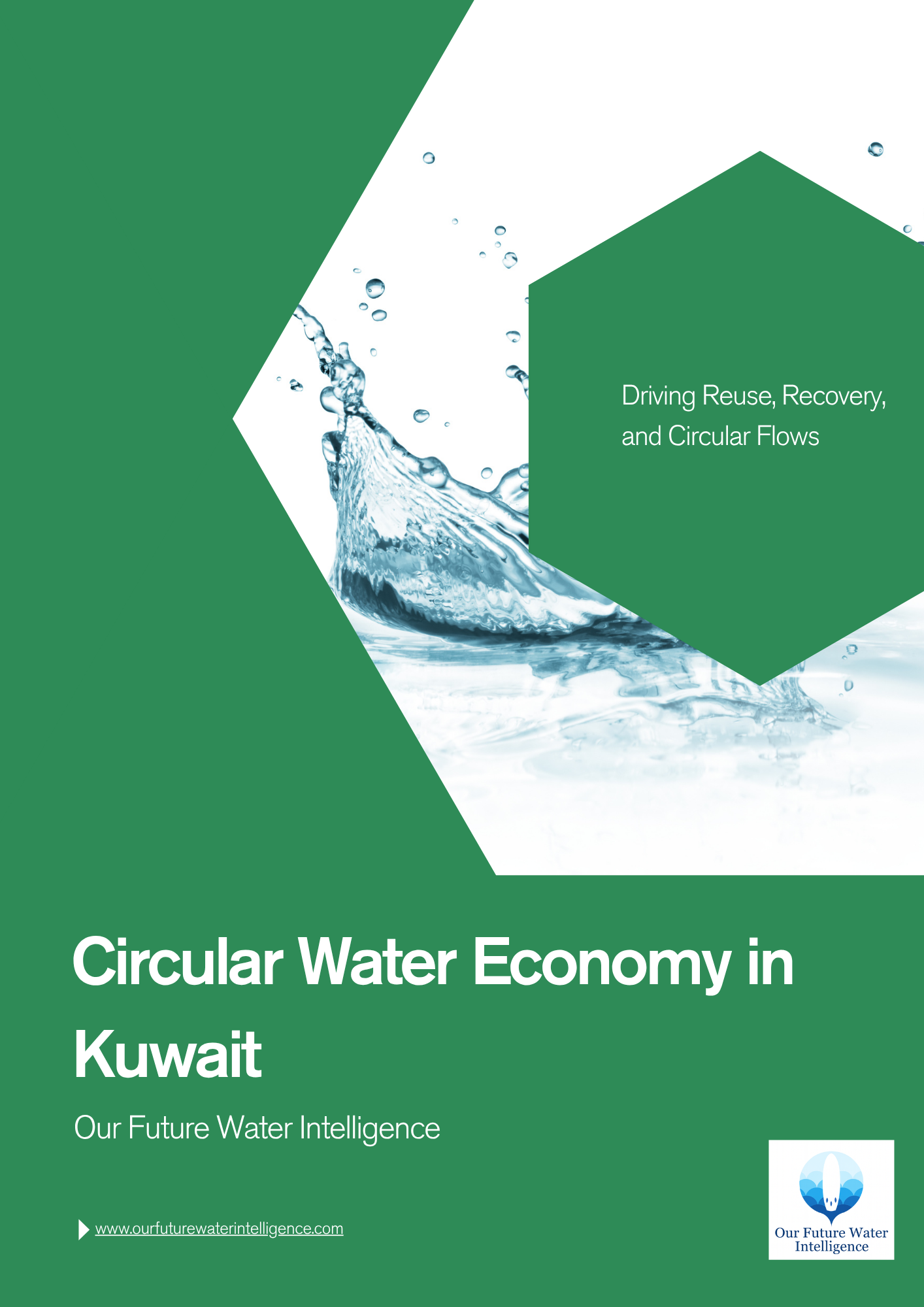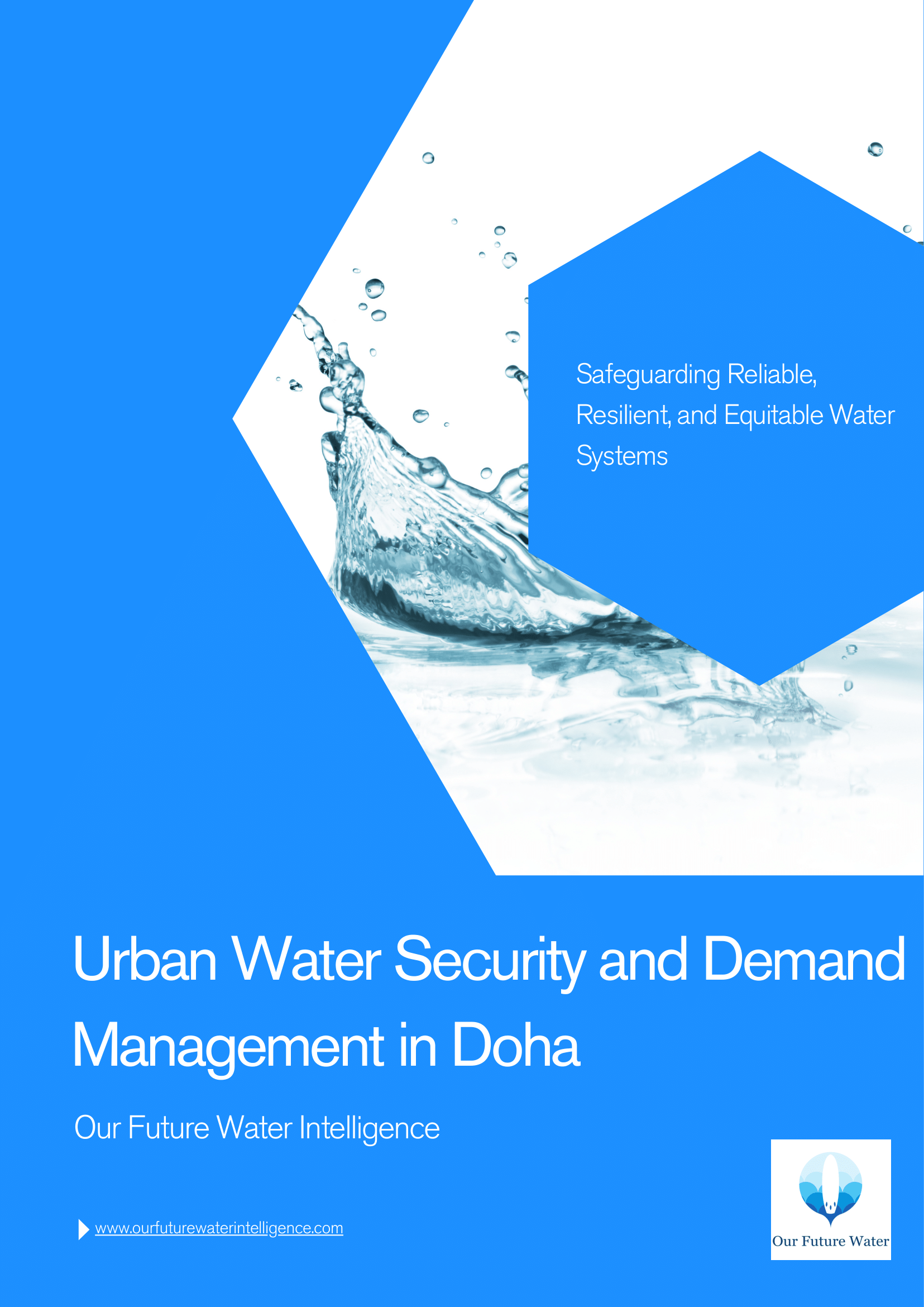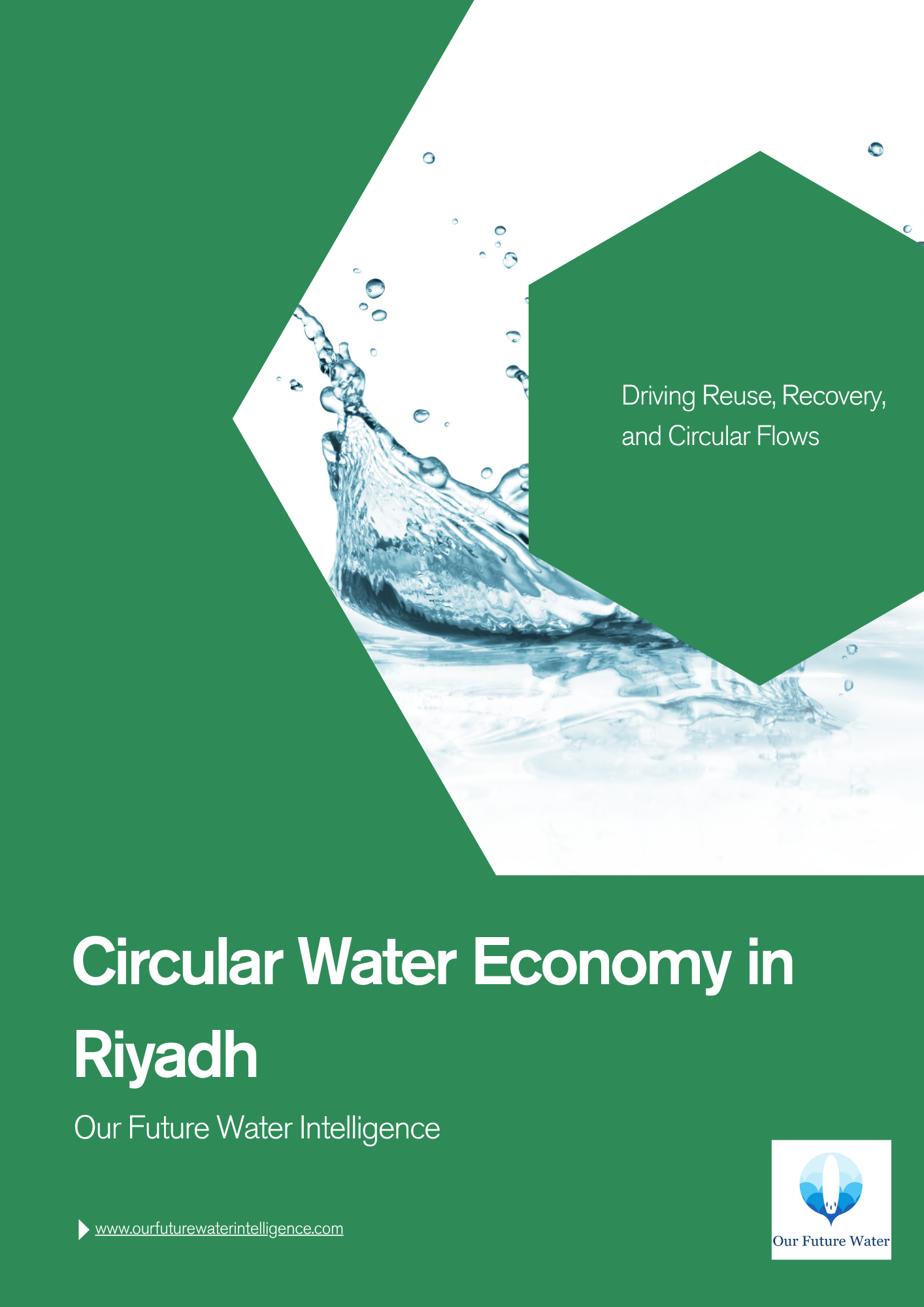Urban Water Security and Demand Management in Riyadh | Toward Sustainable, Efficient, and Digitally Modernized Water Systems
Urban Water Security and Demand Management in Riyadh delivers a concise yet authoritative assessment of one of the Middle East’s fastest-growing and most water-stressed urban regions. The report examines how Riyadh—facing extreme aridity, surging demand, and dependence on desalination—is advancing toward sustainable, efficient, and digitally modernized water systems aligned with Saudi Vision 2030 and the National Water Strategy (NWS) 2030.
Key Insights
Understand Riyadh’s Water Realities
Around 75% of municipal supply comes from desalinated seawater, with the remainder sourced from declining non-renewable groundwater reserves. Desalination consumes about 9% of Saudi Arabia’s total electricity output, driving energy and fiscal challenges.
Explore Wastewater Reuse Expansion
Reuse increased 12% in 2023 to reach 555 million m³, supported by major projects such as the Riyadh South Wastewater Treatment Plant (400,000 m³/day). Saudi Arabia targets 70% reuse by 2030, positioning Riyadh at the forefront of circular water management.
Examine NRW Reduction and Digital Transformation
With Non-Revenue Water (NRW) at 35%, Riyadh’s rollout of over two million smart meters, SCADA systems, and the Kashf leak-detection app (13,000+ users) are cutting losses and improving accountability.
Assess Tariff and Governance Reform
Tariff restructuring—industrial rates rising to SAR 9/m³—balances fiscal sustainability with equity, while aligning with national efficiency targets.
Discover Infrastructure Modernization
Public-Private Partnerships (PPPs) valued at SAR 45 billion are transforming desalination, distribution, and reuse infrastructure, integrating renewable-powered operations for long-term resilience.
Evaluate Climate and Environmental Challenges
With annual rainfall under 100 mm and temperatures exceeding 50°C, Riyadh’s water systems face mounting stress from drought, energy intensity, and population growth exceeding seven million residents.
Gain Insight into Future Pathways
Efficiency optimization, advanced digitalization, tariff reform, and large-scale reuse will define Riyadh’s transition toward sustainable, low-carbon, and climate-resilient water systems.
Designed for policymakers, utilities, consultants, and investors, Urban Water Security and Demand Management in Riyadh provides data-driven intelligence and actionable foresight to guide sustainable water governance in one of the world’s most arid and strategically important cities.
